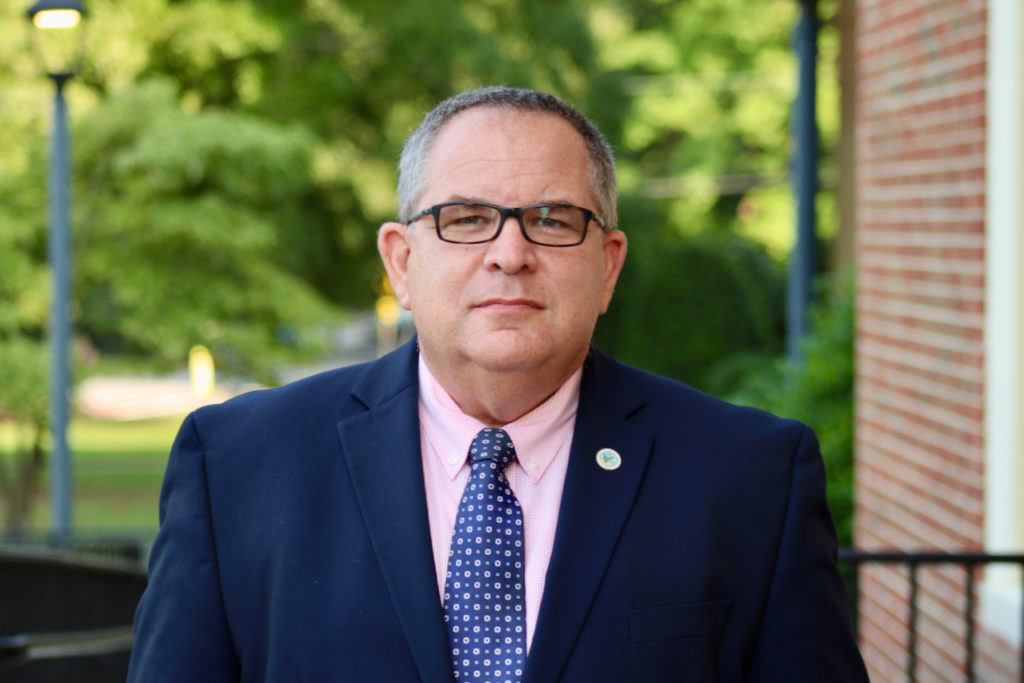
TOWN CENTER — Former Virginia Beach Vice Mayor Jim Wood, who represented the Lynnhaven District and served nearly two decades on the City Council, resigned from office this past month to take a professional opportunity that would preclude him from continuing in public office.
“It was certainly a humbling experience to serve on this body a little over 19 years,” Wood said on Tuesday, Oct. 12, after he was recognized by his former colleagues on the council — and before they surprised him by naming the emergency medical services station in Thalia after him. “The members of the Virginia Beach City Council are some of the finest people I’ve ever had an opportunity to work with, and Virginia Beach city employees are absolutely phenomenal. And they’re part of what makes Virginia Beach a great place”
The Independent News met with Wood in Town Center last month to discuss his time in office and significant events from his tenure. The following is part of a longer conversation that has been edited for length and clarity.
The excerpt begins with a long anecdote about his role communicating with the citizens – and the world – with Mayor Bobby Dyer and the city staff in the immediate aftermath of the mass shooting at the Virginia Beach Municipal Center on Friday, May 31, 2019.
It ends with his thoughts about changes to the city election system, which seems likely to result in ward voting, and whether he may to return to politics.
WOOD: I guess right around midnight, I was driving home, and my phone pops up and it’s 202-000-0000. I answer my phone. They go, “This is the White House Communications Office. The President would like to speak with Mayor Dyer.” I said, “This is Jim Wood. I’m the vice mayor. The mayor’s not with me.” “Well, the President would like to speak to him right now.” And I’m like, “OK.” I give them the phone number. Five minutes later: “It’s the White House Communications Office. The president would still like to speak with Mayor Dyer. He’s not answering his phone. Do you know where he is?” I guess he’s on his way home. I don’t know. I know I’m going to see him in the morning. […] “The President’s going to call back at 7 a.m.”
I call Bobby, and he answers the phone immediately. I go, “Hey, you just missed a call from a 202 area code.” He says, “The Washington Post keeps bugging me.” I go, “No, it’s the President.” Then I get this call saying the President is not going to call until 11 a.m.
[Dyer was working with a police public information officer, so a police captain was asked to get Dyer in position to take the call from President Trump.]
Bobby comes back. […] At 11 a.m., the President calls and says, “Bobby, I’m going to come down there.” And we’re like, “Yeah, please don’t.” We don’t have enough cops right now. It turns out he had somewhere else to go. He was a nice guy. So we go out, and the police are there. They say, “Is the President coming?” I don’t think so. They said, “You’ve got to let us know. We’re going to have to call people in.” I don’t think he’s coming. And then he was going to send [Vice President Mike] Pence, and that didn’t happen. […]
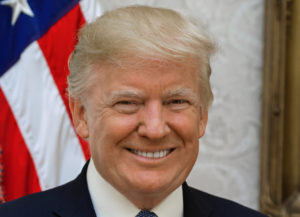
I was very proud of the way the city handled it, the way the police handled it. The city manager did a phenomenal job. [Hansen] was unfairly treated by people about that because he responded absolutely appropriately in times of crisis. It was really tough. You get the same questions over and over again from all these media outlets. I had one guy ask me, “What do you say to the suspect?” And I go, “He’s dead. I don’t say anything to him.” It was a very incredulous response. Surprisingly, they didn’t edit that out.
I couldn’t have been prouder of the response from the city, from everybody. The people who didn’t get any credit for [the response] were the people working behind the scenes to get stuff done. Working with the families. They still are. I don’t think people realize we still have people assigned to the families. There are a couple of people who are still very disturbed by it, family members, survivors, and I wish there was more we could do for them to give them peace. I just know the city really has just done everything they humanly could to help people through a just horrible, horrible thing. And it’s not just loved ones. We have people who were in the building, witnessed their friends being shot, friends being killed.
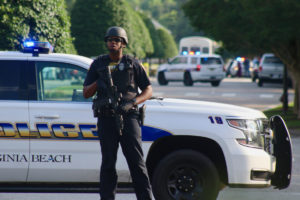
WOOD: What the council did was to empower the staff. During the pandemic it was [former Acting City Manager] Tom Leahy and [former Deputy City Manager] Steve Cover who did a lot of the heavy lifting on this to the point that when this first started percolating, Leahy went out and bought a bunch of giant containers of hand sanitizer before anybody else was doing it. We obviously had a [personal protective equipment] shortage like everybody else. Cover was all over the internet, all over the country buying PPE from different sources. He did a great job.
The reason we did so well on this – and going back to May 31, the response – is the city tabletops these things and continues to tabletop these things. It had only been a year, 18 months since they had done a pandemic tabletop exercise.
INDY: That vaccination setup at the convention center in response to Covid-19 was really remarkable.
WOOD: It had to be the best in the state. What really, really bothered me about that was we could have done so much more if there was more vaccine, if there wasn’t this focus on making sure every locality got the right amount. Virginia Beach vaccination rates were so much higher than the majority of the commonwealth. We could have staffed it up to the point that we could have probably run it for 16 hours a day, seven days a week. It would have cost us a lot of money, but we could have done it. We probably could have vaccinated everybody in Hampton Roads.
They worked with groups and nonprofits that had experience dealing with large crowds and events. When I got my first shot, I waited in line forever – outside, wrapped around the building. But three or four days later, they’d figured that out. We have such an engaged citizenry that are involved in everything. Our volunteer core of people is just phenomenal. When you go in there and see all of these people giving vaccinations who are doctors or nurses or paramedics – they’re not getting paid. They’re just doing it. And the fact that [City Manager Patrick Duhaney] said, “Every city department is going to send people to work this clinic.”
INDY: Was Duhaney a good hire?
WOOD: Excellent hire. I think he has done a phenomenal job. I think he’s got the exact right temperament, and he has an incredible amount of diverse experience, and he’s a very smart guy.
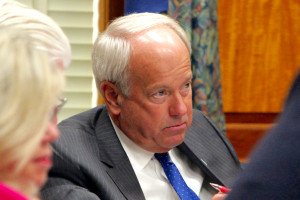
WOOD: Yeah.
INDY: It seems a little divisive.
WOOD: You’ve got different personalities. I’ve served with a total of 30 different council members. That’s a lot. Thirty council members, four mayors counting [City Councilmember Louis Jones, who served as an interim mayor after Sessoms resigned], five city managers including two interims, two city attorneys, two city clerks, two city assessors. I’ve seen a lot of change.
When I was cleaning out my office, I’d saved this, my very first meeting agenda from July 2002. When I flipped it open, the first briefing was the Minority Business Council, which we still talk about to this day, and a lot of planning items and things like that. The issues we have today are the same as they have been for 20 years. There are subtle differences and changes, but, ultimately, they are land-use decisions, they are budget priority, they are public safety, public health, all these sorts of things that we’ve had – economic crises. Nothing has changed.
Council members come in with different expectations as to what they think they can get done and what they’ll actually get done. It is tough to make a difference until you understand the process, until you understand how things go. I made a couple of pretty bad mistakes early on. […] You shouldn’t legislate from the dais. That’s one of the things I learned pretty early on. Make changes at the last minute at the dais late in the evening and it has a higher percentage of going bad. I think people have to learn how things work before they can affect any change.
INDY: One of the frustrations I’ve had is there hasn’t been enough coverage of the massive changes that are going to happen with the voting system.
WOOD: I agree.
INDY: The reality is we’re probably going to have a ward system next year.
WOOD: Yup.
INDY: I don’t know that the appeal’s going to do anything. So the kind of change that we’ve seen over the past couple of years on the council, it feels that may be exacerbated next year. What do you see happening to politics in the city? And was that part of your decision to leave?
WOOD: No. Well, politics in the city. Let me start with that. I think, in the short term, a ward system is an incumbent protection program. Even though it’s a smaller pool of voters, you are still going to have experienced politicians in those positions who are going to be able to raise a significant amount of money. And they’ll be able to spend it a lot more effectively because they’re going to be targeting a smaller number.
I think there is going to be a great sense of disappointment in a number of communities when they realize that they have gone from having 11 people show up to their events to having one person show up at their events, or maybe two if the mayor does, and to be interested in their issues. It’s going to take people on council who have a global view of the city who are not afraid to take positions that may be politically difficult in their districts, because something might be the right thing to do in another part of the city.
I think, if what I’ve seen in other areas is true, you’re going to see council races that still cost about the same amount. They’re still going to be $100,000 races. I think you’re going to see a little bit more partisanship.
INDY: We’ve seen quite a bit of that the past couple years. [Ed. — Council elections are nonpartisan, but parties get involved.]
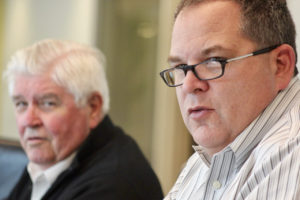
INDY: What brings you back to city government and maybe a run for mayor?
WOOD: I don’t know. I don’t see myself running for mayor. I mean, being mayor is a fulltime job. Being vice mayor is a fulltime job, and I didn’t have to do all the ribbon cuttings and public events. But working with the staff is phenomenal, but it takes a lot of time […] Right now, if somebody wants to be mayor, they need to have the ability to take an incredible amount of time off from work or to be retired or be independently wealthy.
© 2021 Pungo Publishing Co., LLC


Your interview with the former vice mayor was a refreshing conversation that focused on the issue not on a catchphrase to disrupt mr. Wood.
I am impressed with Mr. Wood’s open and clarity of thought.
I look forward to your future publications.
Maybe journalism is not dead, it is just on a sabbatical.